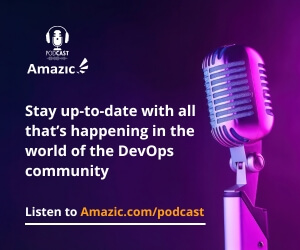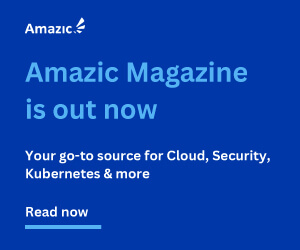Network-Attached Storage (NAS) is a dedicated file storage system that contains one or more storage drives for multiple users to collaborate. It is designed to handle unstructured data, including media storage for personal use, a backup server for a small business, or an unstructured data management tool for larger corporations.
There are three broad categories of NAS devices based on drive capacity, scalability, network bandwidth, drive support, and RAID support, among others. Businesses can choose based on their needs.
- Enterprise NAS is a high-end category that has a large storage capacity and is easily available for clustering. It is designed for enterprises that need RAID and Virtualization capabilities, an option to store large quantities of file data, and data sharing. Enterprise NAS can serve more than 1000 clients and has remote data access.
- Midmarket NAS can be used for hosting applications such as email systems, payroll, accounting databases, and data logging. This server also has a cloud backup that can be used for sharing files or backing up data. Compared to enterprise-level NAS, this type does not support clustering.
- Desktop NAS is a low-end device for small businesses and home users requiring local shared storage. This type of NAS stores up to 20 TB of storage capacity without RAID support.

The importance of backing up NAS data
Here are some reasons why you should backup your NAS data:
Prevent the complete loss of critical data
If an organization does not take enough precautions to protect its data, it can affect productivity, directly impact business continuity, and cost the company’s ability to recover. A report from Netwrix Research states that human error is one of the main reasons for data loss. The report also claims that 35% of organizations cite hardware failure as another reason.
Minimal downtime
Experts recommend that data be backed up in at least three places to protect from cybercrimes or other potential risks. Even if one of the device backups is compromised, the organization is not in a vulnerable position and can quickly recover by restoring the backup. This also gives the business time to resolve the issue and continue the business without severe downtime. According to Datto, the average cost of downtime is nearly USD 8,000 per minute for small businesses, while the cost increases to USD 11,600 per minute for large enterprises.
Control over data outages
Two main data loss causes are physical server damage and device failures. Having a backup of the NAS device in an offsite location can help mitigate the complete data loss. This backup can be in the online cloud or through NAS-based data replication, ensuring that the files are recovered quickly and seamlessly. However, Statista reports that only 91% of organizations back up their data.
Improve collaboration capabilities
Version history is one of the biggest advantages of having NAS backups. When data is shared company-wide, it can be updated or modified by anyone who has access. Unless there is a thread of who is accessing or modifying, it will become difficult to know which is the latest version of the file. The backup option offers the ability to have version control and restore previous versions if it is necessary. This option is also helpful for encrypting data that is affected by ransomware viruses or any other cyberattack.
Backup options
NAS is used to store sensitive data. Given the nature of the data, it is imperative to protect them at all costs. There is always a possibility of data loss. Human error, mechanical failure, security threats, power outages, maintenance errors, or natural disasters are some of the risks that are associated with NAS devices. To ensure the organization does not suffer from these mistakes, it is important to have a sound NAS backup with a proper strategy. NAS backup strategy is used to backup NAS data on another device. While preparing the strategy, it is important to address various issues, including retention period, number of copies, location, etc. Some of the popular NAS backup strategies are listed below.
- Traditional network-based backup uses backup agents that are installed in servers to access data and back on a NAS device. In this backup setup, there is no change in the environment.
- Network Data Management Protocol (NDMP) helps NAS devices to send data to a backup server without any backup client intervention. This type of backup is best suited for file data.
- NAS-based data replication has advanced features that can be used for local and remote replication for NAS data protection.
- Cloud or online data backup is pickup up as an option for NAS device backup. This off-site strategy combines the performance of local NAS devices with a reliable online backup option.
NAKIVO for NAS backup
The recent product offering from NAKIVO is considered one of the best options for NAS backup. NAKIVO Backup and Replication v10.6 offers backup, recovery, and ransomware protection for Microsoft 365. The solution is fast, reliable, and affordable data protection for OneDrive for Business, Exchange Online, and SharePoint Online. Some of the major advantages of NAKIVO Backup and Replication v10.6 include:
- Perform incremental backups of OneDrive for Business, Exchange Online, and SharePoint Online data
- Affordable pricing that starts at USD 0.75 per user/month for a 3-year subscription
- Quickly locate what needs to be restored restore and choose how to restore it
- Scale based on the company’s infrastructure needs to protect thousands of users with a single solution deployment
The US-based corporation offers backup, recovery, security, and administration features that can be used to create fast and efficient backups of unstructured data in CIFS/NFS shares hosted on NAS devices and Windows and Linux machines.
If your organization relies on NAS storage, you need a backup solution. Consider all options, and pick one that suits your needs.
If you have questions related to this topic, feel free to book a meeting with one of our solutions experts, mail to sales@amazic.com.



